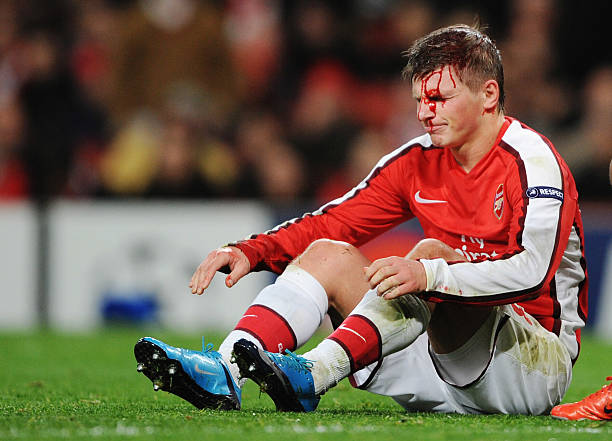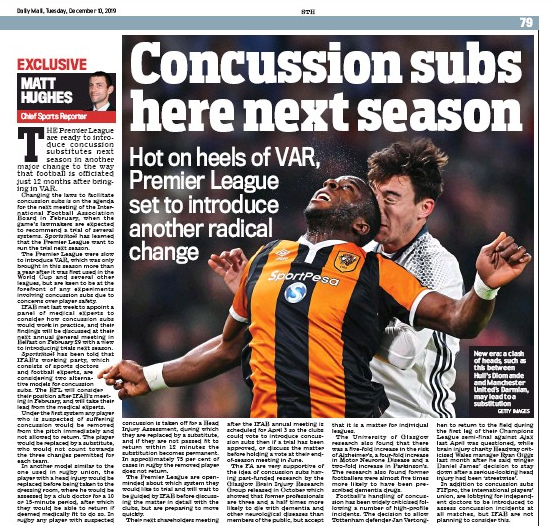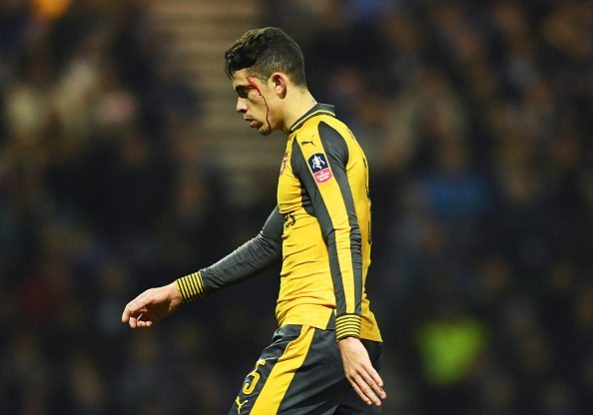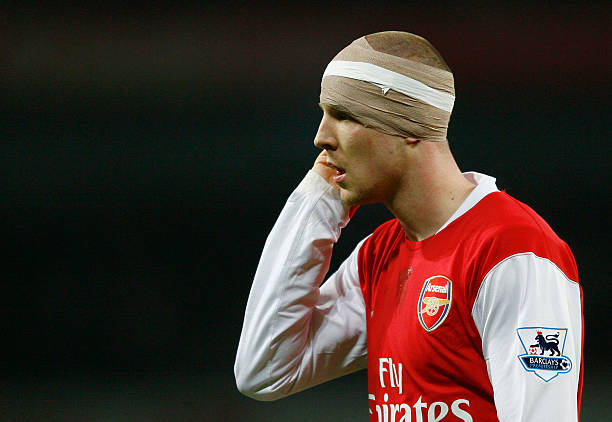The Premier League are expected to trial concussion subs from next season in a move that should be welcomed across the game.

Concussion is a serious issue that has largely been dismissed in football.
In fact, when I was a kid growing up, I remember it being a regular joke among supporters if a player was down with a head injury. ‘Don’t worry,’ someone would inevitably say. ‘It’s only his head,’ relieved and only half-joking that it wasn’t a knee or ankle problem.
The Premier League have not been the swiftest to introduce changes that would safeguard the health of players so it is refreshing to see that they will suggest trialling concussion subs when the International Football Association Board meet in February.
‘Several systems’ are expected to be approved for trial according to an exclusive in Tuesday’s Daily Mail.

A panel of medical experts has already been convened and they are expected to produce a report for the meeting next year, detailing how the trials could work.
Matt Hughes also writes, “Sportsmail has been told that IFAB’s working party, which consists of sports doctors and football experts, are considering two alternative models for concussion subs. The eFL will consider their position after IFAB’s meeting in February, and will take their lead from the medical experts.”
One of the systems would see a player who had suffered a suspected concussion replaced immediately by a substitute that would not count towards the three allowed to be used during a game. Alternatively, they could look to emulate rugby’s ‘Head Injury Assessment’ rule that allows for a player to be replaced temporarily while they are assessed by medics for a longer period of time.
HIA in rugby has a 12-minute cut-off point after which the temporary sub becomes permanent.

At the start of the year, we ran a feature by the Drake Foundation, a not-for-profit organisation committed to improving understanding the welfare and health of sports players through scientific research and collaboration, on the issue of head injuries in football.
“In February 2017,” they told us, “The Drake Foundation published their first completed study which took place between 1980 – 2010 and examined the brains of 14 former professional football players with a history of repetitive football head impacts. They were studied for signs of neurodegeneration: in particular, a disease called chronic traumatic encephalopathy, associated with repeated head injuries and otherwise known as CTE.
You can read more about that study here but as FIFpro, the international player’s union, lobby for independent doctors to be brought in to undertake the assessments, and IFAB not interested in that option, they seem to be content placing too much trust in the hands of clubs and their medics who can often have their judgment clouded by a number of factors, including the team’s position in the league, the player’s willingness to return and pressure they might feel from the coaching team.

